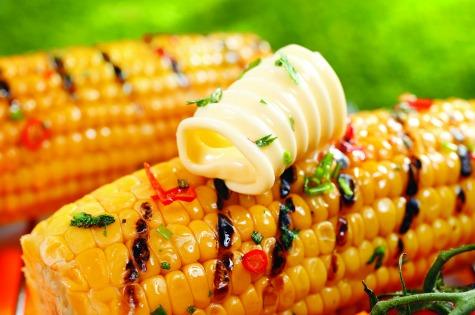With barbecue season in full swing and backyard grills being fired up Australia wide, Despina Sierra uncovers 10 common myths around barbecue cooking:
1. Should meat be at room temperature before cooking on the barbecue?
Yes says Despina. Bring the meat out of the fridge and bring it to room temperature before you place it on the grill. Even better, buy meat directly from your local butcher and start cooking straight away. Keeping meat at room temperature enables the fibres to stay relaxed during the cooking process, keeping the meat tender. On the other hand, if you leave meat out too long you are at risk of bacteria.
2. Does closing the lid heat up the hotplate quicker?
No. Lids are used for roasting, slow cooking meat and keeping the barbecue food warm. If you prefer to cook with the roasting hood down, never cook with the burners on high. Best results can be achieved by keeping the burners on low to medium heat within the desired cooking area.
3. Vegetables should be cooked separately before grilling on the barbecue.
Thicker vegetables should be parboiled first. Boil potatoes and sweet potatoes for 15 to 20 minutes before grilling on the barbecue. Small vegetables or bite-sized portions are best placed on skewers or placing on a grill tray. Corn on the cob grills quicker if the silk and husk is removed. Turn them frequently and grill for 8 to 12 minutes.
4. Are more expensive barbecues better quality than cheaper ones or are they all the same?
Many cheaper barbecues are made with poor grade materials that can rust over time. An expensive barbecue will have higher grade materials such as top grade stainless steel and porcelain coated enamel that can withstand intense heat and will stand up to an onslaught of grease and flames. Expensive barbecues should have robust iron burners, a larger number of gas jets and have thicker better quality hotplates.
5. Should we oil the grill before cooking on the barbecue?
Even on the cleanest of grills, lean foods can often stick when placed directly on the rack. Reduce the risk of sticking by oiling your hot grill with a vegetable oil soaked paper towel using tongs. Do not use cooking spray on a hot grill. A trade secret used by many professional chefs are Teflon liners. They prevent marinades from drying out and sticking and give a professional finish to a marinated barbecue meal. BeefEater BUGG® Teflon liners, RRP $19.95 per pack of two.
6. Does frequent flipping or poking steak help?
Avoid turning and handling steaks too many times when cooking. Preheat the barbecue and cook the steak on medium to high heat for 2 to 3 minutes each side until it is cooked to your liking.
7. Does tipping beer on onions stop them from burning?
Yes. Not only does it stop them from burning, it produces a delicious tasty flavour. Add only a little beer to golden brown onions with a dash of mustard and reduce the heat until they are thick and rich.
8. Does adding salt to meat stop it from drying out?
Yes says Despina. For best results and flavour, season meat just before cooking to prevent any salt drying out the juices.
9. Should we let our meat rest after barbecue cooking or get stuck into it straight away?
Let finished meats rest on a clean platter, tented with foil for about 10 minutes before carving to allow juices to redistribute evenly.
10. Does spraying oil after cooking help clean the barbecue?
Despina recommends removing all food off the barbecue and turning the burners on high to carbonise all food remains. Once this is done, turn off the barbecue and remove all the scraps and spray olive oil with a wire or scrubbing brush.
For Further information visit: www.beefeaterbbq.com

















__small.png)










